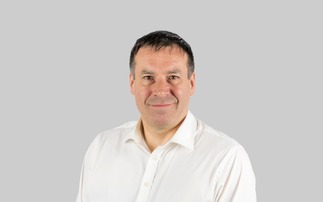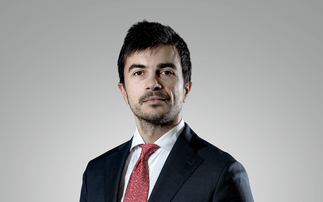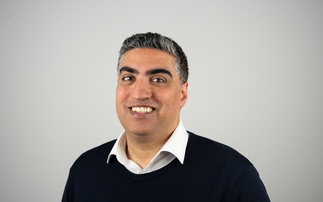We asked Fidelity's Bertrand Lecourt why this theme might prove so powerful for investors - and the world
"If you stop water, the economy stops," says Bertrand Lecourt, who likes to adopt a fundamental, long-term perspective. He points out that for thousands of years, as civilisation developed, humans built their economies around the twin challenges of managing water and waste.
"People settled near the seas, the rivers, the lakes, and then used water for agriculture and energy. As communities got bigger, our cities needed clean water to be healthy. And all along, our increasing wealth has generated more and more physical waste." But investment in managing water and waste has come in waves.
"We see in London a waste water system developed 150 years ago to accommodate perhaps one million inhabitants and now around 10 million people use essentially the same system. You simply have to improve it, for example, with the new super-sewer now being put into play."
Clean cities
Lecourt, a 20-year water and waste veteran, says five drivers operating for thousands of years on water and waste management are now being leveraged by our modern world. "The first is urbanisation," he says. As the global population grows it is moving to cities, including a rising number of megacities of more than 10 million inhabitants.
"By 2050, nearly 70% of the global population may live in cities," he says.* These cities will demand more intensive water and waste industries with higher standards.
The coronavirus outbreak has reminded us that we are physical, not digital, beings and that large concentrations of people must be well managed. "It's going to be about making sure you have a clean city environment, with great waste management and sanitation capacity," says Lecourt.
Water world
The second driver is that as wealth grows, consumption accelerates. "As you get richer instead of buying two shirts you buy four, and that means more water because everything you buy is water."
It's a striking vision of a water-borne economy. In Lecourt's world, a T-shirt represents roughly 2,700 litres of water; eating a kilogram more meat demands up to 15,500 litres of water; a cup of coffee is 140 litres of water.** This magnification of water demand is becoming even more important as Asian and other emerging economies generate a middle class with new consumer tastes.
While farming uses most fresh water globally, industrial demand for water has tripled over the last century, and domestic use of water has risen by 600% since 1960.***
Growing global consumption drives waste as well as water management. "95% of everything we buy is likely to become waste within two years: it's the other side of consumption," according to Lecourt.
Studies have shown that as GDP increases, the amount of waste per head also increases. And many of the most populous countries in the world, such as China and India, have tended to increase GDP at a fast rate.
He's keen on increased recycling as a partial solution but points out that "you still need a company to transport waste, clean it, and do something with it."
* Source: UN, World Urbanization Prospects: The 2018 Revision, p.xix
** Source: Estimates, based on Waterfootprint.org; accessed Spring 2020; approximations only
***Source: Betsy Otto and Leah Schleifer, Domestic Water Use Grew 600% Over the Past 50 Years, February 10, 2020
Important Information
The value of investments (and the income from them) can go down as well as up and you may not get back the amount invested. Past performance is not a reliable indicator of future returns. Investors should note that the views expressed may no longer be current and may have already been acted upon. This fund can invest in overseas markets and so the value can be affected by changes in currency exchange rates. It can also invest in emerging markets which can be more volatile than other more developed markets. The fund may use derivatives for investment purposes, which may expose it to a higher degree of risk and can cause investments to experience larger-than-average price fluctuations. The Investment Manager's focus on securities of companies which maintain strong environmental, social and governance ("ESG") credentials may result in a return that could, at times, compare less favourably to similar products without such focus. No representation nor warranty is made with respect to the fairness, accuracy or completeness of such credentials. The status of a security's ESG credentials can change over time. Investments should be made on the basis of the current prospectus, which is available along with the Key Investor Information Document and annual and semi-annual reports, free of charge on request by calling 0800 368 1732. Issued by FIL Pensions Management, authorised and regulated by the Financial Conduct Authority and by Financial Administration Services Limited, authorised and regulated by the Financial Conduct Authority. Fidelity, Fidelity International, the Fidelity International logo and F symbol are trademarks of FIL Limited. UKM0520/31139/SSO/NA












